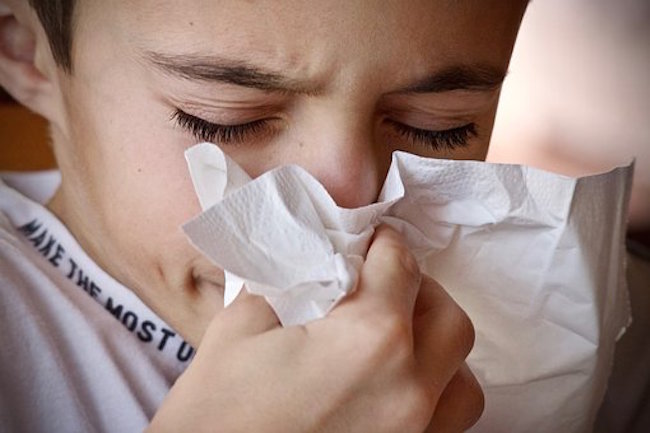5 Germ-Filled Places and How to Stay Healthy in Them from Mercola
You may think you can’t escape germs that are everywhere, but an MSN News report pointed out several precautions you can take to ensure you and your family remain in good health when in unhealthy environments.

Your best bet when fighting germs is to beef up your immune system by eating whole, natural foods, eliminating processed foods and sugar, getting enough sleep and practicing some form of stress management. If your immune system is in tip-top shape, you’ll have a much greater chance of staying healthy, even after coming in contact with germs.
Here are five tips on how to remain healthy in germ-laden places:
- On an Airplane — If you are an airline passenger on the plane’s last of six flights for the day, it’s possible that over 5,000 people had the chance to share their own bacteria, viruses and other microbes with the aircraft seats, tray tables, toilet, arm rests and virtually every other surface on the plane. The most common way for you to be infected with a disease is by touching a contaminated surface, then transferring the germs to your eyes, nose or mouth.
To prevent getting sick while traveling by air, wash your hands frequently and be careful not to touch your face. It also helps to carry a travel-size bottle of alcohol-based hand sanitizer.
2. In Your Home — If someone in your family is sick, keep them in a separate room with a bathroom designated for that person. If this isn’t possible, wipe down the surfaces of the bathroom frequently with a disinfectant and don’t share electronics, food, personal items or towels —use disposable paper towels instead. In the kitchen, have a designated surface for preparing raw eggs and meat and wash all preparation utensils thoroughly before using them on any other foods. The same goes for your hands and kitchen surfaces.
3. Day Care Centers and Schools — Children often put fingers, toys and other objects in their nose or mouth and may have runny noses or cough and sneeze into the air around them. As a result, they have a higher risk of picking up and spreading infections. Parents may send their children to school sick — sometimes knowingly because of a lack of child care or the worry of losing their job — which can lead to their children infecting others. Children should be taught the importance of good hygiene and how to wash their hands often. It doesn’t matter if the water is warm or cold — as long as they wash their hands for 10 seconds, using soap, the germs will be removed.




